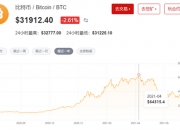 这幅海报精彩地展现了数字货币的全球景观与市场动态
这幅海报精彩地展现了数字货币的全球景观与市场动态数字货币的兴起
Number currency rises
数字货币,特别是加密货币,自从比特币在2009年诞生以来,已经经历了快速的发展。它们是基于密码学方法保证交易安全、去中心化和匿名性的一种全新的支付方式和投资工具。数字货币市场已经有了数年的发展历程,吸引了越来越多的投资者和用户。据统计,全球数字货币的市值已经超过了1万亿美元,并且稳居全球第三大货币市场。

数字货币的种类
Types of numeric currencies
数字货币主要分为三类:
numeric currencies are divided into three main categories:
1. 加密货币:如比特币,它是一种完全去中心化的数字货币,通过密码学算法和区块链技术实现点对点的电子支付。
1. Encrypted currency: For example, Bitcoin is a completely decentralised digital currency that achieves point-to-point electronic payments through cryptographic algorithms and block chain technology.
2. .稳定币:如天秤币(Libra),它的价值与一篮子国际货币挂钩,旨在提供比加密货币更稳定的价值。
2....Stable currency: Like Libra, the value of which is tied to a basket of international currencies and is intended to provide a more stable value than an encrypted currency.
3. 央行数字货币:如中国的数字人民币和瑞典的e-krona,它们是由央行发行的数字货币,与央行发行的纸币1:1挂钩,具有完全中心化的特点。
3. Central bank digital currencies: e-krona, e.g., Chinese digital renminbi and Swedish digital currency issued by the central bank, pegged to 1:1 banknotes issued by the central bank and characterized by full centralization.

数字货币的监管挑战
Regulatory Challenges for Digital Currency
数字货币的快速发展在全球范围内引起了各国政府和金融机构的关注。一方面,数字货币通过去中心化和匿名性等特点,使得传统金融体系面临挑战,金融风险也随之增加。另一方面,数字货币作为一种新兴的金融工具,对国家经济和金融体系的稳定产生影响,因此监管势在必行。
On the one hand, the rapid development of digital currencies has attracted the attention of governments and financial institutions around the world. On the other hand, digital currencies, through features such as decentralisation and anonymity, have challenged the traditional financial system, and financial risks have increased. On the other hand, digital currencies, as an emerging financial instrument, have an impact on the stability of the national economic and financial system, making regulation imperative.
国际监管动态
International regulatory developments
不同国家和地区对数字货币的监管政策也各有不同。有的国家对数字货币采取开放和包容的态度,鼓励数字货币的发展和应用;有的国家则对数字货币持谨慎态度,加强了对数字货币的监管和管理。这导致了全球数字货币市场的监管标准存在一定的不统一性,不利于数字货币的跨境流通和发展。
There are countries that are open and inclusive to digital currencies, encouraging their development and application, and countries that are cautious about digital currencies and strengthening their regulation and regulation. This has led to a certain degree of inconsistency in the regulatory standards of the global digital currency market, which is not conducive to the cross-border movement and development of digital currencies.
数字货币的发展趋势
Trends in digital currencies
随着数字货币的发展,一些国家和央行开始探索发行中心化的数字货币,以提供更高的可控性和监管。例如,中国的数字人民币和瑞典的e-krona就是这一发展趋势的体现。此外,美联储也在2022年发布了关于央行数字货币的白皮书,表明美国也在积极研究和推进数字货币项目。
This trend is reflected, for example, in China’s digital renminbi and Sweden’s e-krona. Moreover, the Federal Reserve issued a white paper on central bank digital currencies in 2022, indicating that the United States is also actively studying and promoting digital money projects.

中国的监管政策
China's regulatory policy
中国是最先对加密货币进行强制监管的国家,监管措施也最为严厉,目前处于全面禁止的状态。中国人民银行等部门发布了一系列禁令,禁止金融机构和支付机构开展与加密货币相关的业务,并将其视为非法金融活动。
China is the first country to enforce the regulation of encrypted currency and has the most stringent regulatory measures and is currently in a state of total prohibition. The People's Bank of China, among others, has issued a series of prohibitions prohibiting financial institutions and payment agencies from carrying out operations related to encrypted currency and treating them as illegal financial activities.
欧盟的监管政策
EU regulatory policy
欧盟对加密货币采取的是承认+监管的态度。加密货币在整个欧盟被广泛认为是合法的,但各个成员国内的加密货币交易法律有所不同。随着《加密资产欧盟市场法》(EU Markets in Crypto-Assets Act,MiCA)的推进,欧盟正在努力建立统一的监管框架,以规范加密货币市场。
The EU's approach to cryptographic currency is to recognize + regulate. Encrypted currency is widely considered legal throughout the EU, but the laws governing encrypted currency transactions differ from one member country to another. As the EU Market Act on Encrypted Assets (EU Markets in Crypto-Assets Act, MiCA) moves forward, the EU is working to establish a uniform regulatory framework to regulate the cryptographic currency market.
美国的监管政策
US regulatory policy
美国对加密货币行业的态度一直受到国内金融业和利益集团的影响,整体上美国对加密行业展现的是监管+部分支持的态度。美国既希望对加密货币进行全面监管,防止金融风险外溢,又希望将加密货币作为官方金融和银行系统的一部分,进一步巩固和扩大在金融领域的领先地位。
The US attitude toward the crypto-currency sector has been influenced by domestic financial and interest groups, with the US as a whole showing regulatory + partial support for the encryption industry. The US wants both to regulate encryption money comprehensively to prevent financial risk spillovers and to further consolidate and expand its financial leadership as part of the official financial and banking system.
结论
Conclusion
数字货币的监管是一个复杂且不断演变的领域,各国政府和国际组织正在努力寻找平衡创新与风险控制的最佳路径。随着技术的发展和市场的成熟,可以预见未来会有更多的监管措施和政策出台,以促进数字货币市场的健康发展。
The regulation of digital currency is a complex and evolving area, and governments and international organizations are trying to find the best way to balance innovation with risk control. As technology develops and markets mature, more regulatory measures and policies can be foreseen in the future to promote healthy development of the digital currency market.
分享
重写
注册有任何问题请添加 微信:MVIP619 拉你进入群

打开微信扫一扫
添加客服
进入交流群



















发表评论